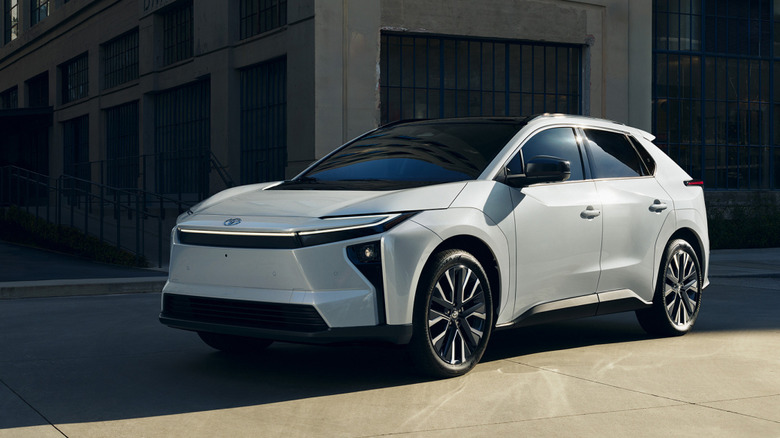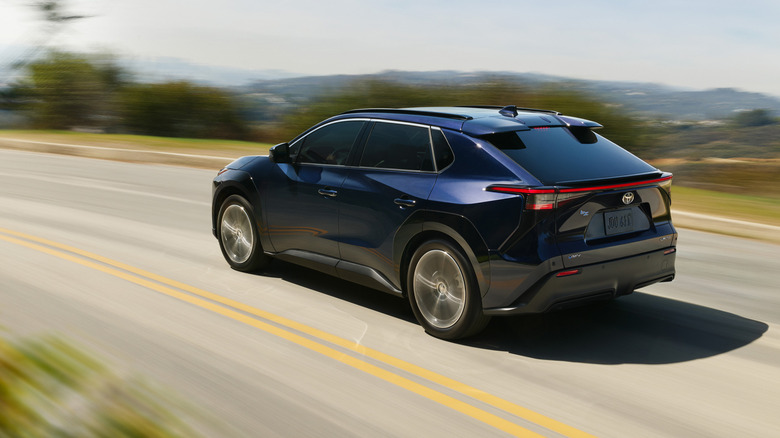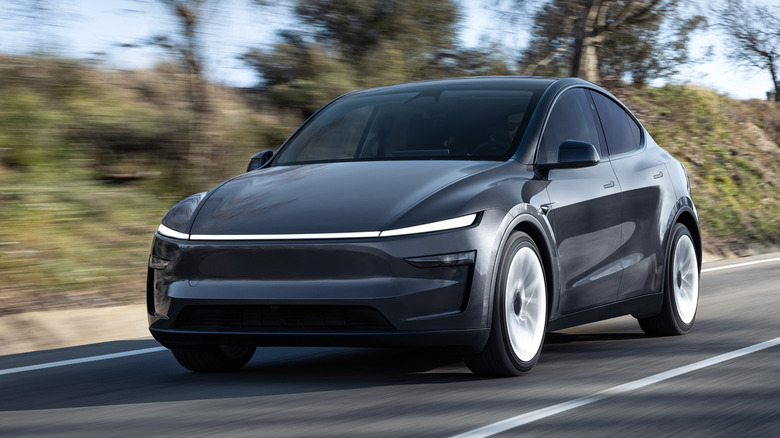How Does The Upcoming 2026 Toyota bZ Compare The Tesla Model Y?
Though Toyota has become the world's dominant automaker when it comes to hybrid powertrains, offering hybridization on everything from inexpensive economy cars to full-size pickup trucks, Toyota's efforts with pure-electric vehicles have been slower-moving and less ambitious. In fact, it wasn't until the 2023 model year that Toyota launched its first pure EV for nationwide sales, the bZ4X. We drove the bZ4X upon its release and found that it was a serviceable, user-friendly electric SUV, but not one that stood out from the competition in any meaningful way. Given Toyota's extensive experience with hybrid batteries, the bZ4X's performance and range were both lower than expected.
For 2026, though, Toyota announced it is giving the bZ4X a major overhaul – not just improving its performance but cleaning up its exterior look and also simplifying its name. It will now just be called the Toyota bZ. So, with more power and more range, we thought we'd see how the upcoming 2026 Toyota bZ stacks up to one of the best-selling electric SUVs in the world — the Tesla Model Y.
Improved, but by how much?
When the 2026 bZ arrives in dealerships later this year, it will be offered in either FWD single-motor or AWD dual-motor variants. With an updated, larger battery on the FWD Plus and AWD models, Toyota says the FWD Plus bZ will now be able to go up to 314 miles on a charge. The updated dual-motor version will make 338 horsepower, go up to 288 miles on a charge, and has a claimed 0-60 time of 4.9 seconds — all significant improvements over the current bZ4x.
The recently refreshed Tesla Model Y, meanwhile, is currently sold in two different variations, long-range RWD and long-range AWD. In RWD form, it will do a claimed 0-60 in 5.4 seconds and has an EPA driving range of 357 miles. The dual-motor long-range AWD Model Y will do 0-60 in 4.6 seconds, with an EPA range of 327 miles.
Before any tax credits, the long-range RWD 2025 Tesla Model Y starts at $46,380 after destination, while the AWD version starts at $50,280 after destination. Toyota hasn't released pricing for the 2026 bZ yet, but the 2025 bZ4x starts at $38,465 (after destination) for a FWD model. Opting for the dual-motor, AWD option adds a little over $2,000 to the price. If Toyota can keep the updated bZ's pricing in the same ballpark as the current one, the bZ could end up delivering a lot of bang for the buck.
Has Toyota done enough to beat Tesla?
When talking about EVs these days, it's important to note that tax credits can have a major impact on the actual price. The Model Y is currently eligible for a $7,500 federal tax credit, though it's unclear how much longer that tax credit will be available. There's also the potential of tariffs raising the price of the made-in-Japan bZ, but things could change by the time they start arriving at dealerships.
Beyond just their prices and performance, there are also some key differences in the driving experience between the Model Y and the bZ. The old bZ4X received complaints about its busy interior design and obtrusive center console, so Toyota has worked to clean things up on the updated model. The Model Y, meanwhile, has Tesla's typically sparse interior design with the single center screen handling nearly everything. Whether you prefer the Toyota's more traditional controls or the Model Y's minimalist design will ultimately come down to personal preference.
We'll have to wait to see exactly how the updated and improved bZ does in the real world, but so far, the earlier bZ4Xs have proven to be mostly trouble-free. More than that, it's nice to see Toyota making a serious attempt to compete not just with the Model Y, but with all the other vehicles in the highly competitive electric SUV segment.


